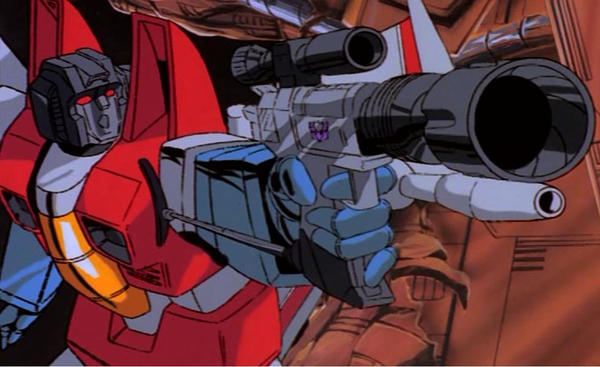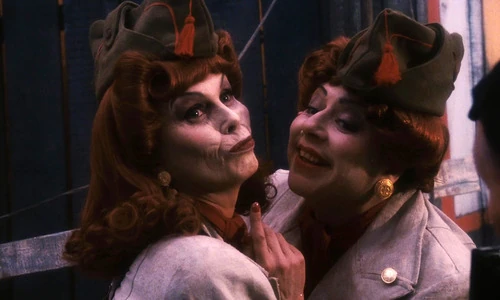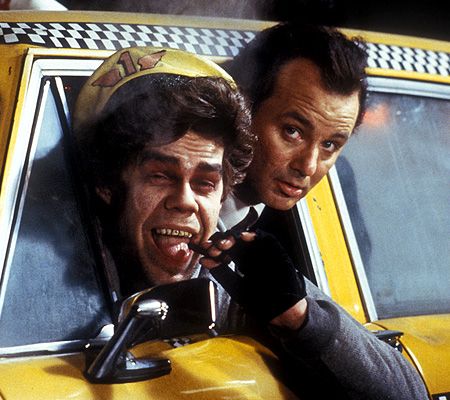For the toy company of Hasbro, one of their most successful cartoon TV adaptations and iconic staples among many children are the transformers robots. Who knew that such a simple idea of a robot that could transform into item that we are familiar with everyday could be so entertaining? To many, the TV series is what made the toy line even more fun for people because at that point, they had characters with personalities and backstories that made them somewhat relatable to their viewing counterparts. Twenty years later or so action director Michael Bay got a hold of the rights turned it into even more of a phenomenon, spawning sequel after sequel. While seeing how popular the concept had become it's important to take note that the "robots in disguise" characters originally had their own animated movie two years after its official TV airing. With that said, expectations should be different for this viewing. The problem is even with a different set of expectations; the end result is disappointing. There is effort here, but it lies among a pile of questions.
 |
| "Look at my detailing!" |
The story takes place in the midst of war between the Autobots lead by Optimus Prime (Peter Cullen) and the Decepticons lead by Megatron (Frank Welker). During this period they are interrupted by a massive cybertronian planet known as Unicron (Orson Welles) looking to destroy anything with life and can only be stopped by the matrix of leadership. The premise at first is acceptable but once immersed into the conflict all buildup is lost. Penned by Ron Friedman (who wrote for a lot of other TV shows), this feature length film was actually a connecting point between seasons 2 and 3 of The Transformers TV show. This is the immediate problem for several viewers. For those who never saw the TV show, are now required to see seasons 1 and 2 before even thinking about viewing this movie. On top of that, there are numerous characters listed and seen throughout the run time but yet are not mentioned, given backstories to or even speak dialog. This makes it all the more difficult for a viewer who is not familiar with the TV show.
Then there's the whole plot, which originally stated seemed easy to follow. However as the viewer watches, they will notice that for Unicron's motivations and background go untouched. Why does Unicron want to destroy all life and where did he come from? Why does he destroy his own kind? Even the plot point of the matrix of leadership isn't very clear. How does it keep Unicron from doing its business? All these questions go unanswered in the form of convenient contrivances. Perhaps this information was given prior in the TV show? Again though, how would this win over new viewers if they've never seen the show? This lack of exposition can make the viewing feel quite empty. Nonetheless there are still some elements that provide enough saving grace to keep this movie at an average level. One of the more noticeable things is for anyone who saw Michael Bay's live-action franchise before this, they will at least be able to point out any of the characters they've seen before but in their 80s version.
Another positive is the voice-actors cast for the characters. Of the most popular you can't go wrong with is Peter Cullen who will always be Prime and Frank Welker who is practically anybody and anything else. There are also vocal appearances for Grimlock, one of the dinobots (Gregg Berger), Shockwave (Corey Burton), Jazz (Scatman Crothers), Bumblebee (Dan Gilvezan), Starscream (Chris Latta), Blurr (John Moschitta Jr.), Hot Rod (Judd Nelson), Galvatron (Leonard Nimoy), Ultra Magnus (Robert Stack) and Kup (Lionel Stander). But the voice that stands out the most of this bunch is none other than the voice of the late Orson Welles. Although it was reported that Welles hated his role, the magnitude of his voice-work at which it is used for the massive planet destroyer is gleefully astounding. Welles voice is so deep and booming that it matches the look and presence of this memorable character with ease. Imagine if Welles voiced a character today? Holy moly.
 |
| Unicron |
Helping at least make what's left of this product somewhat enjoyable is the overall visual design and animation. Directing this movie was Nelson Shin whose main expertise is being an animation director. So although he wasn't heavily involved in the actual steps of animation, his supervision was still critical. Other animators like Satoshi Urushihara (Akira (1988)) also worked on this project and most of the animation looks great. The entire look of the film has a very anime inspired feel to it, making the detailing on a lot of the backgrounds and close up shots look very intricate. Lastly, the musical score composed by Vince DiCola is actually well put together. Although he tried his best to score Rocky IV (1985) as his first attempt, his style just didn't match. Here however, DiCola feels like a better fit because of his reliance on synth musical instruments. It centers on robots so why not? Also Stan Bush's "Touch" single is quite the catchy song. It rings all the more 1980s to anyone looking for a blast from the past.
It's not the movie some fans of the newer films may expect it to be. If you never followed the TV show then it will be confusing to understand much of the plot devices, extra characters and their motivations. This is where it fails. Yet even with that, it's hard not to enjoy the anime-style detailed animation, appropriate electronic musical score and respectable voice cast, including a final stoic performance from the late Orson Welles.
Points Earned --> 5:10









